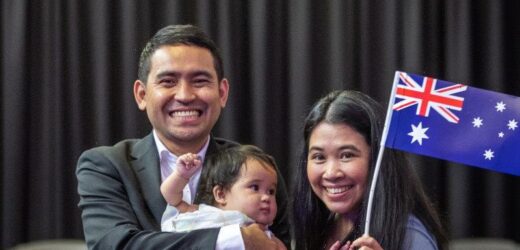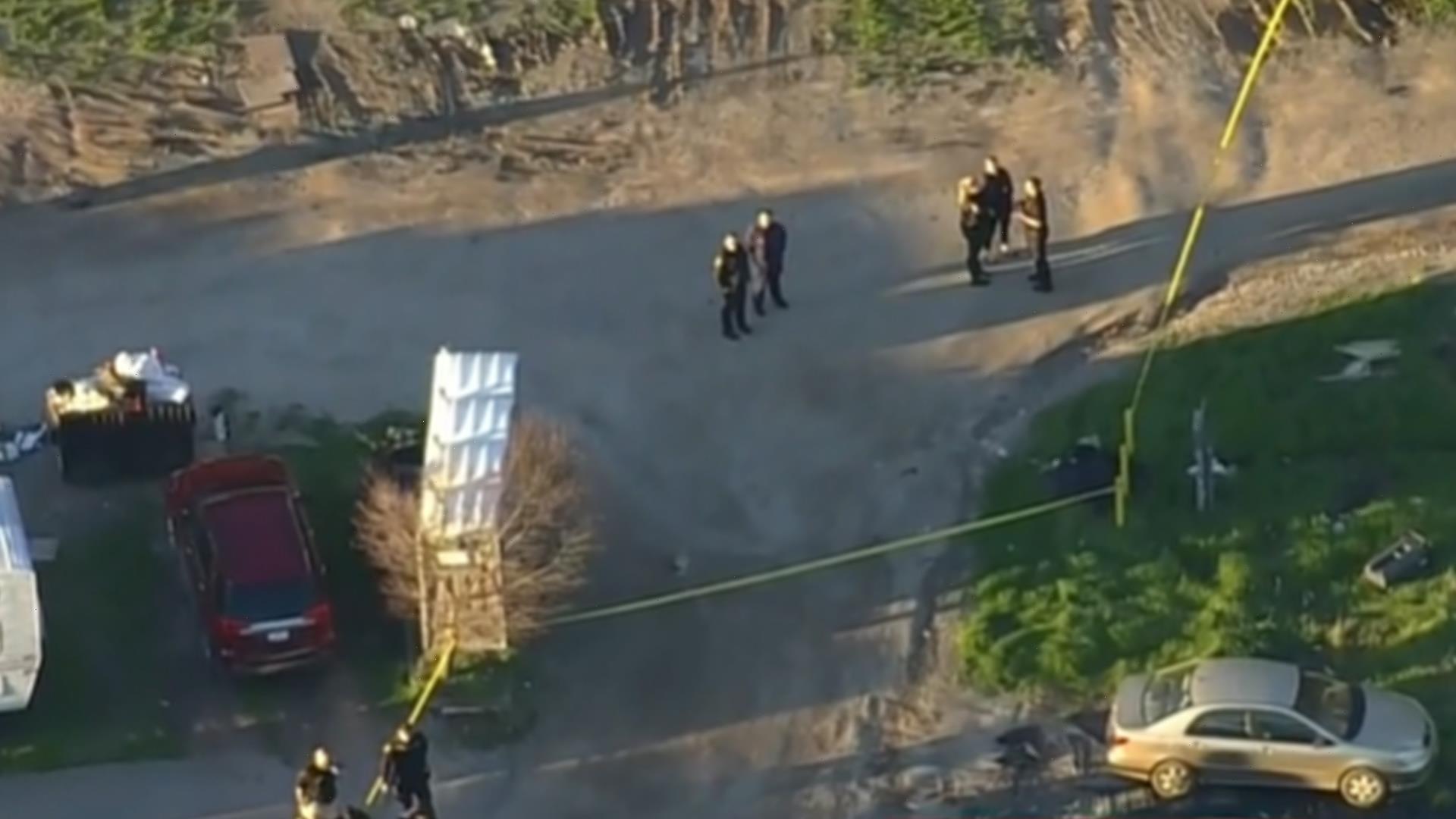After nine years living in Melbourne, Briton Rob Wilke officially became an Australian, donning an “Always Was, Always Will Be” Aboriginal rights T-shirt to mark the occasion.
On a rainy Tuesday, some 120 Merri-bek residents, of all ages and hailing from the UK, Europe, Asia, Africa and the Middle East, became citizens at Coburg Town Hall in Melbourne’s inner north. They are among the first since the federal government repealed a Coalition rule that forced councils to hold the ceremonies on Australia Day.
Rob Wilke, originally from Britain, became an Australian citizen on Tuesday night.Credit:Jason South
Wilke, 35, said Merri-bek’s move to change his citizenship ceremony from Thursday to Tuesday – to avoid January 26 – was wonderful.
“I lived in Scotland for a long time and January 26 is Robert Burns night, so it’s just basically a night of drinking whisky, eating haggis and chatting but here it is such a loaded thing,” he said. “The fact that it’s still celebrated in the way it is means a lot of hurt to a lot of people who frankly have more right to be here than me.
“Moving [citizenship ceremonies] is a step and a good one and it’s great that it’s come from the ground up.”
Seven councils around the country held the first swathe of “alternative” Australia Day citizenship ceremonies on Tuesday, including four in Victoria. Murrindindi council, Loddon Shire and Hindmarsh Shire all held ceremonies of less than 10 people according to the federal government.
But the Merri-bek ceremony had an extra significance as it was this council, formerly known as Moreland Council, which triggered a major reversal of a Morrison-era edict when it voted last month to stop holding citizenship ceremonies on January 26 out of respect for Indigenous Australians.
The council risked being stripped of the right to hold the ceremonies entirely by defying the policy, which came about after Scott Morrison’s predecessor, Malcolm Turnbull, banned two Melbourne councils – Darebin and City of Yarra – from holding any citizenship ceremonies after they refused to hold them on the controversial date.
Local councils hold multiple citizenship ceremonies throughout the year, but the Morrison edict forced councils to hold at least one on January 26.
A number of new citizens at the ceremony were unaware of the date change and were focused on the momentous occasion of becoming a citizen of Australia.
Ailene Leswe with husband Leo and baby Alex celebrate becoming Australians.Credit:Jason South
Ailene Leswe, 39, from the Philippines said becoming a citizen on Tuesday felt like “home”.
She and husband Leo both became citizens on Tuesday night, deciding to make Australia their permanent home after the birth of their eight-month-old baby Alex.
“It’s really different from back home because it feels safe. And you can see there is a future here – especially for Alex,” said Ailene.
“Compared to back home, this country is very friendly, people are polite and nice,” said Leo. “For me this is a really special occasion.”
Uncle Andrew Gardiner of the Wurundjeri Woi Wurrung Cultural Heritage Aboriginal Corporation conducted a Welcome to Country at the ceremony, and told The Age holding the ceremony two days before Australia Day was much easier for him personally, and his community.
“It’s important because I don’t have to have any mourning thoughts [today about] the tragedies that occurred in the past,” he said. “Today is a day celebrating citizenship for people that are wanting to become citizens in the country and I feel much more welcoming of people, bringing them into the community and including them in the broader population [today].
“From the Wurundjeri and the general community’s perspective, the new Merri-bek Council has shown great leadership and intestinal fortitude [and] courage for them to actually take the challenge on.”
New Merri-bek Mayor Angelica Panopoulos said the night was “first and foremost” about the new chapter of her constituents lives but said Tuesday’s historic ceremony was “extra special” because it wasn’t on January 26.
“We actually get to choose a day to have this ceremony, that listens to our community and that empowers us to make a decision that’s right for us and we don’t have this joyous occasion tainted by what January 26 really means.”
Merri-bek was the first council to test the policy under the Albanese government and, weeks later, federal Immigration Minister Andrew Giles overturned the ban, allowing councils to hold the ceremonies between January 23 and 29.
While other Victorian councils, such as the City of Greater Geelong, Shepparton, Whittlesea and Surf Coast Shire, have flagged their interest in moving their ceremonies from January 26, those councils told The Age the policy change came too late into preparations for the 2023 celebrations and a change would be looked at for the 2024 ceremonies.
In NSW, the City of Sydney said this week it would move its January 26 ceremony to Friday.
The Hobart City Council also voted to move ceremonies from Australia Day, but the change won’t come into effect until next year.
Prominent companies and organisations have distanced themselves from Australia Day since the government’s policy change by allowing their employees to take an alternative day off if they felt uncomfortable celebrating January 26.
The federal opposition has criticised the government for overturning the Australia Day ceremony rule, with immigration and citizenship spokesman Dan Tehan saying Labor had bowed to councils.
“Make no mistake, this is Labor laying the groundwork to abolish January 26 as Australia Day despite Anthony Albanese promising during the election campaign that Labor had no plans to change the date of our national day,” he said.
The prime minister has said many times that there are no plans for changing the date of Australia Day.
The Morning Edition newsletter is our guide to the day’s most important and interesting stories, analysis and insights. Sign up here.
Most Viewed in National
From our partners
Source: Read Full Article




